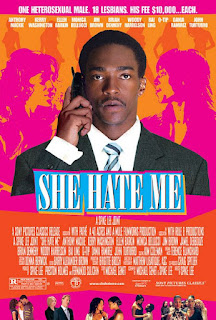Movie Name: Mrs. Harris Goes to Paris
Year of Release: 2022
Director: Anthony Fabian
Starring: Lesley Manville, Isabelle Huppert, Lambert Wilson, Alba Baptista, Lucas Bravo, Ellen Thomas, Rose Williams, Jason Isaacs, Anna Chancelor, Christian McKay, Bertrand Poncet, Freddie Fox, Guilaine Londez, Roxane Duran, Delroy Atkinson, Vincent Martin, Dorottya Ilosvai, Philippe Bertin
Genre: Drama, Comedy
Score out of ten (whole numbers only): 7
Watch it on Amazon Prime
Year of Release: 2022
Director: Anthony Fabian
Starring: Lesley Manville, Isabelle Huppert, Lambert Wilson, Alba Baptista, Lucas Bravo, Ellen Thomas, Rose Williams, Jason Isaacs, Anna Chancelor, Christian McKay, Bertrand Poncet, Freddie Fox, Guilaine Londez, Roxane Duran, Delroy Atkinson, Vincent Martin, Dorottya Ilosvai, Philippe Bertin
Genre: Drama, Comedy
Score out of ten (whole numbers only): 7
Watch it on Amazon Prime
Synopsis and Review
The always stupendous Lesley Manville finally gets a film centered around her, and this lovely fantasy from writer/director Anthony Fabian not only takes her on a fantastic trip, but also surrounds her with some iconic and unforgettable talent. The film, which is an adaptation of the novel by Paul Gallico (originally published in 1958, in what became a series with a few additional books with the same character, adapted to the screen by director Fabian and Carroll Cartwright), follows the story of Mrs. Harris, a widower who in 1957 makes ends meet by working as a cleaning lady (and she has a few regular clients). One of her more affluent clients has some haute couture in her closet, which fascinates Mrs. Harris, who longs to wear an own such a dazzling dress. When she unexpectedly receives a war-widow's pension, she decides she has saved enough to go to Paris, and get a Dior dress of her own. Upon arrival she quickly forges some friendships at the train station, but also at Dior's showing, which she manages to get in, even if she doesn't have an invitation (she manages to do so, courtesy of the gallant Marquis de Chassagne who takes an interest in her). Mrs. Harris hones in on one dress that has been on the runway, but has to settle for another one, since a more affluent client chooses the same one just to spite her. Dior agrees to make a dress for her, since she's paying cash, and the Couture House has fallen on hard times. While she waits for the dress to be made, Mrs. Harris stays with a newfound friend, André, the Dior accountant who in turn is interested in the beautiful Natasha, a model for the house. As Mrs. Harris gets familiarized with a new life in Paris, her joy and practicality start influencing those around her.
"Mrs. Harris Goes to Paris" follows Anthony Fabian's previous directorial efforts, namely "Good Hope" a documentary focused on South Africa and "Louder than Words", a film which featured David Duchovny, Hope Davis and Timothy Hutton. "Mrs. Harris..." manages to capture the central character as somewhat of a radiant beam of energy and positivity, even when she's dealt with some harsh challenges (including the death of her husband, and during her experience in Paris, the realization that the Marquis' interest isn't what she originally thought of). The director smartly focuses on her journey, and giving us her vision of the world, which even though somewhat idyllic, it is nonetheless fascinating and populated with colorful characters (both in Paris and in London). While many of the supporting characters don't get quite as much of a dimension and arc as Mrs. Harris, the director manages to give additional attention to Isabelle Huppert's Madame Colbert, unearthing the vulnerability behind her somewhat icy demeanor, while also giving just enough attention to Jason Isaacs' Archie (as the potential love interest) and Lucas Bravo and Alba Baptista's blooming romance. It's a feature that while not achieving the flow and refinement of some of James Ivory's/Merchant Ivory releases, it solidly creates a vivid and fantastical universe that is centered around a great set of characters. The cast is fantastic, commandeered by Lesley Manville, who gets wonderful support from the iconic Isabelle Huppert, Lambert Wilson, Jason Isaacs, Anna Chancelor, and Christian McKay. The production team is equally impeccable, including Felix Wiedemann's cinematography, production design by the fantastic Luciana Arrighi and costumes from the celebrated Jenny Beavan. Worth watching!

















